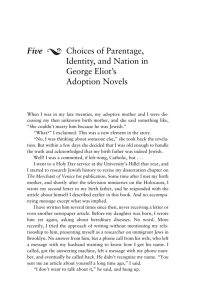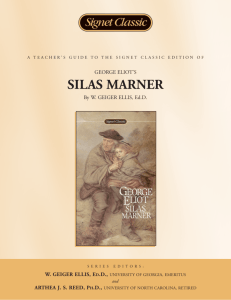George Eliot and the 'Religion of Favourable Chance'
advertisement
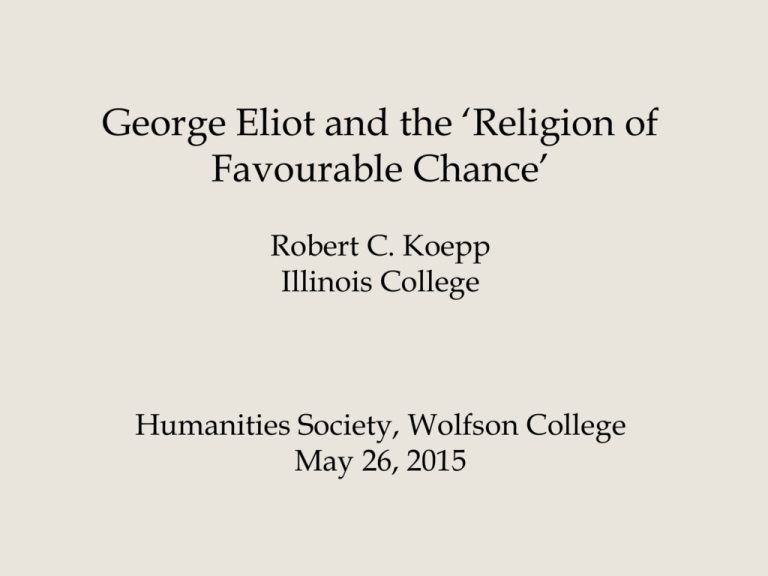
George Eliot and the ‘Religion of Favourable Chance’ Robert C. Koepp Illinois College Humanities Society, Wolfson College May 26, 2015 Mary Ann Evans - portrait by Francois Durade (1850) George Henry Lewes Photograph taken in 1858 by Mayall George Eliot, or Marian Evans Lewes – drawing by Samuel Laurence (1860) Eliot’s Fictional Works: Scenes of Clerical Life (1858) Adam Bede (1859) The Mill on the Floss (1860) Silas Marner (1861) Romola (1863) Felix Holt, Radical (1866) Middlemarch (1872) Daniel Deronda (1876) Translations (German to English): David Strauss’s The Life of Jesus (1846) Ludwig Feuerbach’s The Essence of Christianity (1854) “Favourable Chance, I fancy, is the god of all men who follow their own devices instead of obeying a law they believe in.” --Silas Marner Godfrey Cass’s dilemma (Silas Marner) He fled to his usual refuge, that of hoping for some unforeseen turn of fortune, some favourable chance which would save him from unpleasant consequences . . . . And in this point of trusting to some throw of fortune’s dice, Godfrey can hardly be called specially oldfashioned. . . . Let even a polished man of these days get into a position he is ashamed to avow, and his mind will be bent on all the possible issues that may deliver him from the calculable results of that position. . . . Let him betray his friend’s confidence, and he will adore that same cunning complexity called Chance, which gives him the hope that his friend will never know. . . . His religion will infallibly be the worship of blessed Chance, which he will believe in as the mighty creator of success. (Silas Marner) Detail of Arthur Visiting Hetty in the Poysers’ Dairy (Adam Bede) (painting by Edward Corbauld, commissioned by Queen Victoria, 1861) Arthur told himself, he did not deserve that things should turn out badly—he had never meant beforehand to do anything his conscience disapproved—he had been led on by circumstances. There was a sort of implicit confidence in him that he was really such a good fellow at bottom, Providence would not treat him harshly. (Adam Bede) . . . many will not stick at believing that happiness can come at any day and hour solely by a new disposition of events; though there is nought less capable of a magical production than a mortal’s happiness, which is mainly a complex of habitual relations and dispositions not to be wrought by news from foreign parts, or any whirling of fortune’s wheel . . . . (Felix Holt, the Radical) Esther Lyon – “conscious of being strangely awed by something that was called good fortune” (Felix Holt) Edward Burne-Jones’s Wheel of Fortune (1872) The Wheel of Fortune by Karl Böker The Illustrated London News, April 22, 1876 The Casino at Monte Carlo by Jean Beraud (1889) Christian Bokelman, Casino at Monte Carlo (1884) “I am not fond of denouncing my fellow-sinners, but gambling being a vice I have no mind to, it stirs my disgust even more than my pity. The sight of the dull faces bending round the gaming tables, the raking-up of the money, and the flinging of the coins towards the winners—all this seems to me the most abject presentation of mortals grasping after something called a good that can be seen on the face of this little earth. Burglary is heroic compared with it. . . . Hell is the only name for such places.” (GE, Letters) William Frith, Salon D’Or, Bad Homburg (1871) . . . Fred was of a hopeful disposition, and a vision had presented itself of a sum just large enough to deliver him from a certain anxiety. When Fred got into debt, it always seemed to him highly probable that something or other . . . would come to pass enabling him to pay in due time. And now that the providential occurrence was apparently close at hand, it would have been sheer absurdity to think that the supply would be short of the need . . . . (Middlemarch) . . . it is a comfortable disposition . . . to expect that the wisdom of providence or the folly of our friends, the mysteries of luck or the still greater mystery of our high individual value in the universe, will bring about agreeable issues . . . . Fred felt sure that he should have a present from his uncle, that he should have a run of luck. . . . [His] assets of hopefulness had a gorgeous superfluity about them. (Middlemarch) Fred Vincy and Mary Garth (Middlemarch) Gwendolen at the Gaming Table (Daniel Deronda) Illustration by H. Winthrop Peirce (1888) Gwendolen: “I am going to live.” (Daniel Deronda)
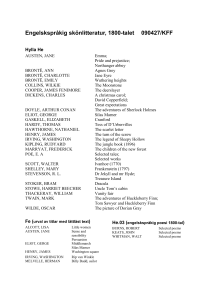
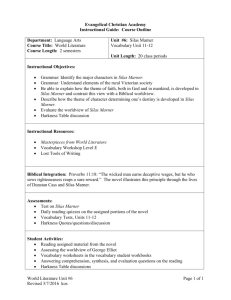
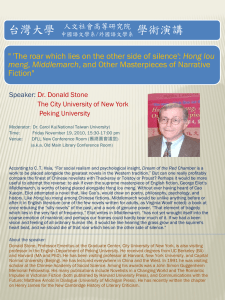
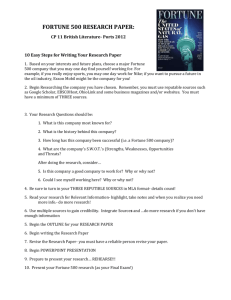
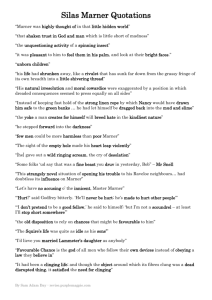
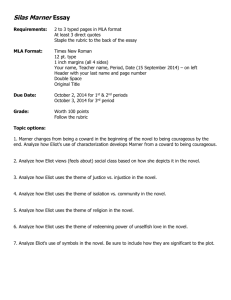

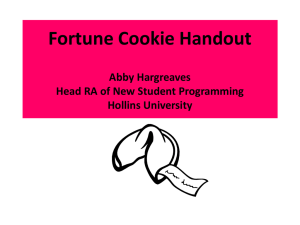

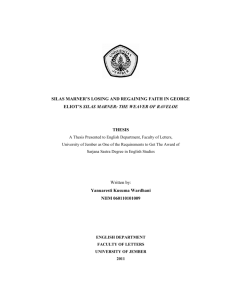
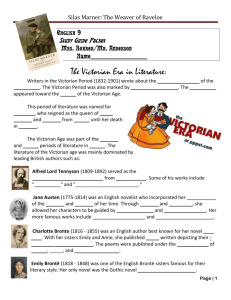
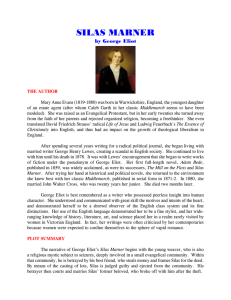
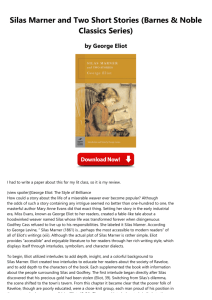
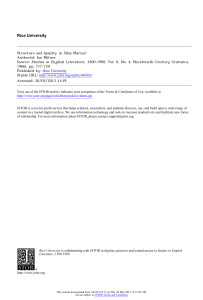
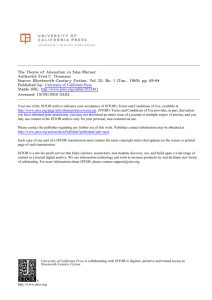
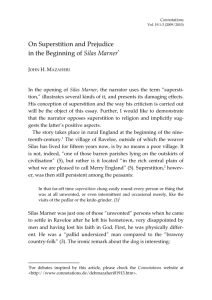
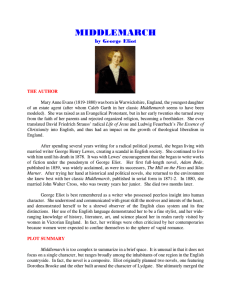


![This article was downloaded by: [Kings College London] Publisher: Routledge](http://s2.studylib.net/store/data/012317318_1-9b19ee7d5605078379e4c0e732228afc-300x300.png)
